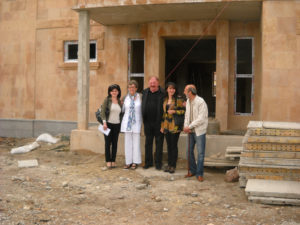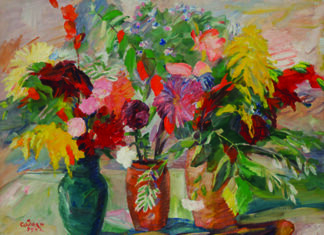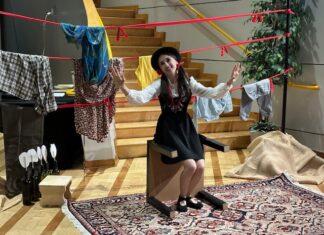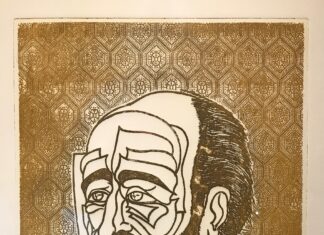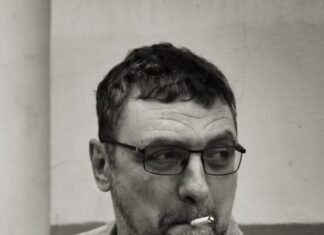Special to the Mirror-Spectator
POTSDAM, Germany — On September 20, the Gumri music school (“Octet”) will officially celebrate its reopening. And, if all goes as planned, a brand new grand piano will arrive from Germany for its new concert hall, a gift from the Mirak-Weissbach-Stiftung, a recently established foundation.
As co-founder with my husband, I had the opportunity to present the foundation and its project on September 7 at the Lepsiushaus in Potsdam, outside Berlin. The question I addressed was: why should a new foundation choose this as its first big project? Why a grand piano? Why Gumri? And why a Blüthner grand piano?
The idea to set up a new foundation has a family background: both my parents were orphans who survived the Genocide and made it to America. Although economic conditions in the Depression prevented them from attending college, they understood the importance of education and urged us to study hard. As a successful businessman, John Mirak sponsored youth education both in the Boston area and abroad. He supported the Armenian Cultural Foundation in Arlington and set up the John Mirak Foundation, which is active in Armenia sponsoring kindergarten playgrounds or school projects, as well as reforestation efforts.
When my husband and I first visited Armenia in 2008 with my brother Bob (who has taken over direction of both foundations), we visited several of the projects. We also went to Gumri, which along with nearby Spitak, had been almost obliterated in the 1988 earthquake. We had the chance to visit the music school and to meet Director Harytyun Asatryan und his staff. The structure they had been using for classes was a metal shack, a domik. The teachers told us proudly that classes had been suspended only for two weeks after the catastrophe, and that, first in private homes, then in this “temporary” building, they continued to graduate students every year. The young musicians treated us to a concert, performed with seriousness and passion. We were struck by the warm hospitality shown us, and the optimism the teachers exuded. Somehow, sometime — they were confident — the school would be rebuilt.



